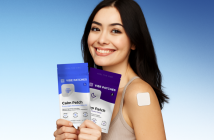Soda might taste good, but it wreaks havoc on developing bodies. Your kids’ favorite drink may also be harming their health. Here’s why and how to encourage your growing children to drink healthier beverages.
It’s Addictive
Soda is addictive, owing both to the sugar content but also because of the caffeine. This alone makes it a semi-dangerous drink because caffeine withdrawals (from not drinking soda) mean the child gets cranky, can get headaches, and will continue to crave the beverage. According to a Johns Hopkins report, caffeine is the most commonly used mood-altering drug in the world.
The report goes on to say that caffeine builds an addiction and dependence. Those experiencing it may find it difficult to quit, even if they want to. And, children find it especially difficult due to their age and lack of experience, coupled with their poor reasoning and judgment skills.
Children aren’t immune to dependence, and due to their smaller size, are more susceptible to dependence. Studies on sugar are similar. Sugar leads to dependence with cravings and withdrawals. A diet soda isn’t a better option though because artificial sweeteners trick the brain into thinking there is sugar when there isn’t. Drinking diet soda may actually increase dependence because the body isn’t getting sugar, just something that taste like sugar.
According to East Indy Dental Care, it’s common for children to drink soda, but it doesn’t mean it’s healthy. Children may develop dental problems, including an erosion of dental enamel, cavities, and other bacterial problems.
There’s No Nutritional Value
Soda has no nutritional value. It does provide a lot of calories, however. Consuming soda might cause children to eat less of the foods they need because of the sheer number of calories from the sugar. Those who drink soda regularly may get less than the recommended amount of calcium, vitamin A, and magnesium.
The Cans
The soda is harming the child’s brains. Soda cans are lined with chemicals to help protect the drink. But, they don’t protect the child. MSG can be hiding in the citric acid of soda, and in artificial flavorings. It’s an excitotoxin which has been shown to damage neurons in the brain of mice. High levels have also been linked to brain tumors, Alzheimer’s disease, and Parkinson’s, brain damage, behavioral problems, and learning disabilities.
It Weakens Bones
Drinking soda can deplete bones of minerals. Phosphorus, which is a common ingredient in soda, leads to bone loss when levels exceed calcium. Caffeine is another thing that interferes with the absorption of calcium. Kids who drink excessive amounts of soda aren’t likely to be drinking milk and other calcium-containing foods.
Behavioral Issues
One possible issue with soda is it may cause behavioral issues in children. The additives and sugar may cause rises and then sudden drops in blood sugar. According to a survey or 3,000 mothers, children to drank soda were more aggressive in general, had trouble paying attention, and were withdrawn.
Weight Problems
The major problem with soda is its empty calories and the fact it contains so much sugar. Not only is it damaging to teeth, all those calories can be stored as fat. Because the child is less likely to be eating healthy foods, there’s an increased risk of the child becoming obese.
What’s more frightening is drinking soda even in moderation may not reduce risk. A single 12 ounce can increase the risk of type 2 diabetes by 22%. A study done on mice found that they developed glucose intolerance, and metabolic syndrome and type 2 diabetes. This happened even when the mice were fed artificial sweeteners similar to those found in diet sodas.
Soda Leads To Heart Disease
Heart disease isn’t something you should worry about with your child. However, just one soda a day can increase the risk of a cardiovascular event by 61%. That same amount of soda is also linked to a 19% increase in heart disease.
Conclusion
By giving your child soda, even on a semi-regular basis, you are dramatically increasing their risk of many different kinds of disease, including bacterial infections in the mouth due to the sugar. Soda does carry very real risks to children, and should never be given to them. While it might seem overly cautious, many parents have chosen to instead give their children water, and other beverages which do not contain sugar, or contain very little sugar.
If you want to keep your child healthy, consider switching to low-sugar or no-sugar added juice. (occasionally), water, naturally carbonated water (sparkling water).
Hayden Lawson works at a dental clinic and is a Mom of 3 kids which keep her on her toes! Since they were toddlers she has encouraged healthy eating habits and has banned soda from the house, it only being allowed on very special occasions.





No portion of this article can be reproduced without the express written permission from the copyright holder.